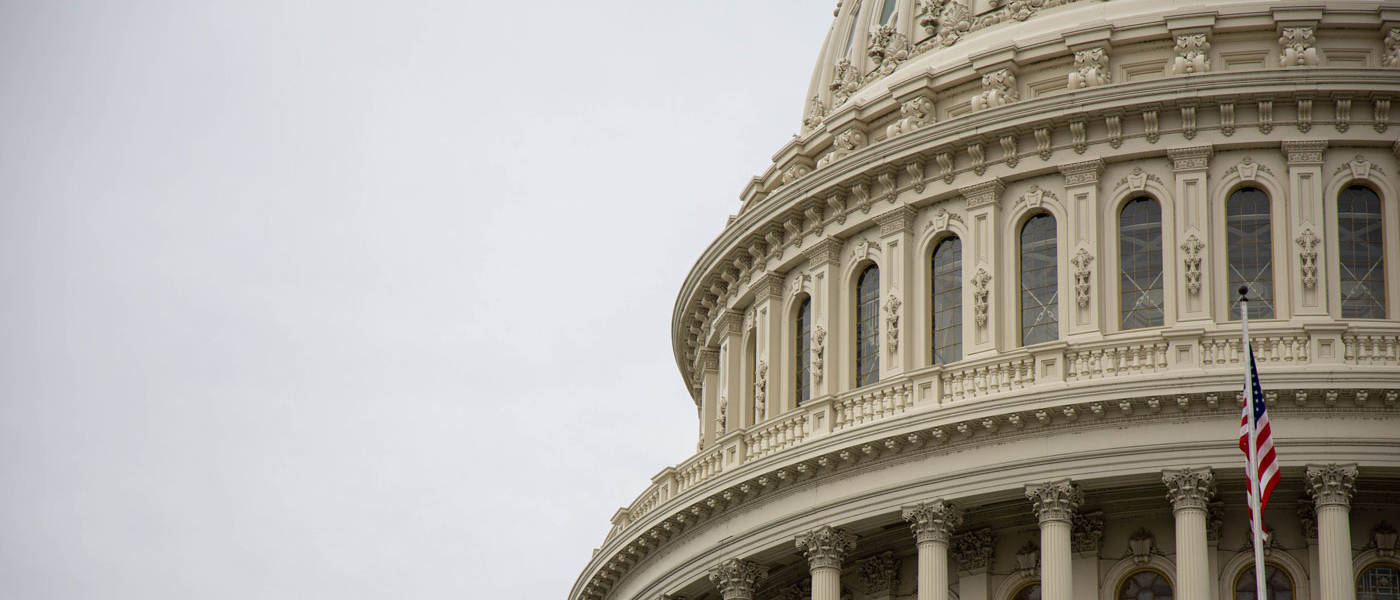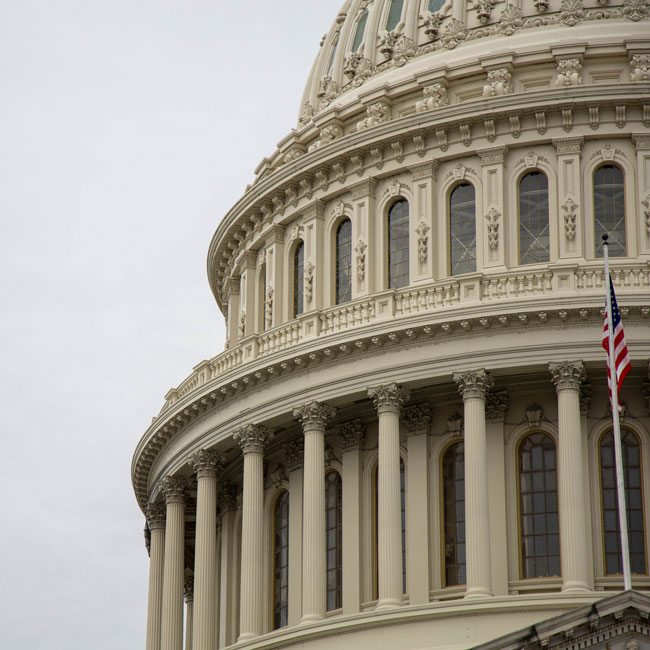Does Australian politics need more than just female quotas?

Does Australian politics need more than just female quotas?
Opinion + AnalysisBusiness + Leadership
BY Joshua Pearl 8 OCT 2021
The Labor Party’s recent decision to parachute Kristina Kenneally into the ethnically diverse electorate of Fowler came at the expense of Tu Le, a female Australian lawyer of Vietnamese background.
The decision revealed two things about politics in Australia. First, that female quotas work. Second, that if you are an Australian of Asian heritage, it’s difficult to join the political class. This is not news. The 2018 report by the Australian Human Rights Commission found that while nearly 21% of Australians are from a non-European background (excluding First Nations people who comprise an additional 3%), they make up just four per cent of Australia’s federal politicians.
Scrolling though the list of Australian leaders reveals this lack of representation. Scott, Dom, Dan, Mark, Steve, Pete, Andrew and Mike run the country, alongside one woman, Annastacia. Not one is of non-European background.
It is hard to understate the importance of a representative political class. A political class that acts in its own interests, or in the interests of a select few, is quite simply, not a democracy. A monarch rules to ensure power stays in the family line. An autocrat rules in his self-interest. In a civilian dictatorship, political decision-making rewards some and punishes others, as shown by the Russian and Chinese experience (think Chechens and Uyghurs respectively).
But a democracy is different. And democracy, at its core, is political decision-making that reflects the preferences – and better still, the interests – of the electorate. It is what drives democracy’s ability to achieve broad based economic growth. And it is what underpins the Nobel Prize winner Amartya Sen’s findings that “no substantial famine has ever occurred in any independent country with a democratic form of government and a relatively free press”.
When a democracy’s political class fail to reflect their society, they almost certainly fail to make decisions that best serve the electorate’s interests.
Consider Anthony Albanese. Albanese knows his own interests. He will have a reasonable understanding of other fifty-year-old blokes from Marrickville. But the further he moves out, the less understanding he has. I suspect he does not properly understand the concerns of a typical thirty-year-old woman, and I am nearly certain he has no real sense of the needs and wants of politically under-represented groups such as the Vietnamese community. When Albanese makes decisions that affect politically under-represented communities, it is hard to see how he could be appropriately informed.
An identical point can be made with respect to the Prime Minister, Scott Morrison. Simply replace Marrickville with Cronulla. It is this very reason why country folk want their local members to be country folk, and not people who, living in the city, neither understand the nuances of rural issues, nor have the same “skin in the game”, so to speak.
There are three principal ways to achieve a more representative political class: grassroots movements, targets and quotas. The logic for grassroots movements is that when party members better reflect Australian society, this translates into a similarly representative political class. But the proof is in the pudding. The Liberal and Labor Party have been compelled to introduce female quotas and targets because they have found grassroots movements to be insufficient. Targets are what is hoped for, but are not binding. But based on the Liberal Party’s experience with its target of 50% female representation across Australian parliaments by 2025, targets seem similarly impotent. Women account for just 28% of Liberal parliamentarians.
The most effective method to ensure the political class reflects society is quotas, something borne out by the international experience in Canada, New Zealand, Mexico and Sweden, and the domestic experience of the Australian Labor Party. When Labor first introduced female quotas in 1994, 13% of federal Labor parliamentarians were women. Today it is 48%.
There are a number of arguments against quotas. One is that quotas undermine politicians who are members of the quota group. But is Penny Wong’s career tainted by the fact that Labor has a female quota? And would we really think any less of Julie Bishop or Gladys Berejiklian had the Liberal Party had female quotas?
Another is that quotas are not “very democratic”. But this misunderstands democracy. Democracy is about collective decision-making that is responsive to the interests of citizens. It is not an unfettered Labor and Coalition duopoly, led by a handful of party executives and the estimated 1% of Australians who are party members (and if you think it is not a duopoly, try and name the last federal cabinet minister who wasn’t a member of one of these parties). Both groups have obligations that stretch beyond party members, and extend to all Australians. But do they recognise these duties? And how easily are they set aside when at odds with the interests of the party or the individual politician?
The argument against quotas that appears to have some merit is that quotas risk overruling other desirable characteristics such as intellectual capacity, political charisma or work ethic. This is not to say that under-represented groups don’t have equally great candidates. Rather, it acknowledges that in snap elections, or when relevant political branches or parties are disorganised or dysfunctional, the need to meet quotas may trump other factors.
And yet this overstates the purity of our preselection system. Deals get done. Mistakes happen. There are poorly qualified politicians who have won out over better qualified people. Sometimes the individuals we elect are criminals and other times they simply aren’t up to the job. It is unlikely well-defined quotas undermine the quality of our political class. Indeed, the evidence is pretty clear that the current system has led to the election of people who would never get into parliament if merit was the determining factor.
The argument for quotas based on ethnic or cultural background, sexual orientation or disability status, is not a popular one. Yet if female quotas are justified, it is difficult to see how quotas for other under-represented groups are not equally justified. There is, naturally, a limit to the number of groups that can be included. Groups would need to have a certain critical mass, be qualitatively different to other groups and be comprised of members of relevantly similar backgrounds.
But if we are serious about the need for the political class to reflect society, we should be serious about quotas for more than just women.
A qualification to this general argument is that all who are elected in a representative democracy are bound to bring their best judgement to bear when acting in the interests of the electorate as a whole. That is, the fact a person comes from a particular group does not mean they are its ‘delegate’. The point about quotas is not that one’s identity enables or precludes the possibility of providing ‘representation’ in this broader sense. Rather, quotas ensure that a diverse electorate can have confidence that when judgement is exercised then it will be informed by a range of considerations that include the experiences of all.
An Australian parliament without women or Indigenous people, without rural representatives, or without people of Asian heritage, cannot meet the range of interests of the electorate.. A broader quota policy would help Australia realise a more legitimate version of democracy. It may also mean that added to the names of Bob, Paul, John, Tony, and Julia, is a name like Tu or Dai.
Ethics in your inbox.
Get the latest inspiration, intelligence, events & more.
By signing up you agree to our privacy policy
You might be interested in…
Opinion + Analysis
Business + Leadership
How to build a successful culture
Opinion + Analysis
Business + Leadership
Georg Kell on climate and misinformation
Opinion + Analysis
Society + Culture, Business + Leadership
How to tackle the ethical crisis in the arts
Opinion + Analysis
Business + Leadership, Relationships, Society + Culture
Renewing the culture of cricket
BY Joshua Pearl
Joshua Pearl is the head of Energy Transition at Iberdrola Australia. Josh has previously worked in government and political and corporate advisory. Josh studied economics and finance at the University of New South Wales and philosophy and economics at the London School of Economics.
360° reviews days are numbered

360° reviews days are numbered
Opinion + AnalysisBusiness + Leadership
BY The Ethics Centre 21 SEP 2021
360 reviews, ‘culture pulses’ and staff surveys are the go-to tools for leadership evaluation and understanding company culture, but ‘shadow values and principles’ stop them from revealing the full picture. Here are three steps to identify and address shadow values to better understand you company’s culture.
Strong culture is integral to the smooth functioning of companies, but most organisations are only getting half the picture, says John Neil, Director of Innovation and member of the Consulting and Leadership team at The Ethics Centre.
360-degree reviews and staff engagement surveys provide a glimpse of company culture, but what they don’t reveal are the deeper, endemic aspects of culture that are ingrained and influential – the ‘shadow values and principles’.
Shadow values and principles are often invisible when culture is seen only through the lens of traditional staff surveys and reviews. However, all companies have their version of them and they need to be brought to light, acknowledged and addressed to truly gauge what’s in play in the culture. In doing so, Neil says “we can significantly improve outcomes both for individuals and for organisations.”
Below are three steps to identifying and addressing shadow values and principles.
1. Identify what shadow values are
“There are really two fundamental aspects to an organisation’s culture,” Neil says. “There are ‘above the line’ elements: the visible, the identifiable, the self-evident. And then there are ‘below the line’ elements, which are less visible, more implicit, and not so easy to identify. The latter are shadow values and principles.”
In other words, they are the unspoken rules, attitudes and behaviours of a company’s culture that aren’t immediately apparent but influence every aspect of the business.
While they can be positive, neutral or negative, “being aware of them is a really key part of better understanding what drives individual employees and the organisation’s culture as a whole,” Neil says.
2. Understand how they operate
Shadow values and principles can operate in numerous ways. One organisation, which commissioned The Ethics Centre to review its culture, had the positive shadow principle of “putting members first”.
“If staff had no clear information or instructions about how to respond to a situation, they would apply this principle and act in the member’s best interest,” Neil says.
“‘Putting members first’ was not codified as one of the organisation’s corporate principles, but it was widely held throughout the organisation. It’s an incredibly powerful and positive shadow principle.”
Another organisation was challenged with becoming more agile but was hampered by the shadow value of ‘harmony.’ Again, while not being formally one of the organisation’s official values, it had a central place in driving behaviours, some of which were positive, but others were detrimental.
“Being harmonious and keeping the peace was something that everyone held to, and while it could be positive, it had negative dimensions as well,” Neil says. “People tended to over-consult, often to keep the peace as there tended to be a culture of avoiding conflict.”
“The decision-making model was a consensus based one and tended to include everyone. As a result, people would defer accountability for making decisions, and therefore decision making was unwieldy and bureaucratic. The shadow value was a major impediment to building a culture in which people expressed their actual views.”
Critically, the organisation’s strategy involved increasing its agility, responsiveness and a focus on innovation – cultural traits that needed to be consciously developed. However, the shadow value of harmony and its negative effect of conflict avoidance meant innovation and agility was more difficult to achieve.
3. Learn how to name and address shadow values
So how can organisations bring their shadow values into the light and begin to remedy the negatives?
“We need to recognise the limitations of the existing approaches to understanding culture, such as staff engagement surveys,” Neil says. “Those methodologies are only as good as the psychological safety in an organisation and the employees’ belief that their contributions to those surveys are going to make a difference.”
This is where a review that focuses on shadow values and principles can identify the unstated operating culture and make recommendations to realign purpose and reaffirm strategic ambitions.
“There also remains a need to recognise the strategic significance of culture,” Neil says. “Culture is integral to the success of a company. It’s the backbone of delivering on an organisation’s strategy.
“There is still, I think, a general lack of recognition of how important culture is in achieving and delivering on strategy. Culture goes much deeper than ‘engagement’.”
Want to find out more about shadow values and principles? Head here.
Ethics in your inbox.
Get the latest inspiration, intelligence, events & more.
By signing up you agree to our privacy policy
You might be interested in…
Opinion + Analysis
Business + Leadership
Our regulators are set up to fail by design
Opinion + Analysis
Business + Leadership
Doing good for the right reasons: AMP Capital’s ethical foundations
Opinion + Analysis
Business + Leadership
Accepting sponsorship without selling your soul
Opinion + Analysis
Business + Leadership
The anti-diversity brigade is ruled by fear
BY The Ethics Centre
The Ethics Centre is a not-for-profit organisation developing innovative programs, services and experiences, designed to bring ethics to the centre of professional and personal life.
How avoiding shadow values can help change your organisational culture

How avoiding shadow values can help change your organisational culture
Opinion + AnalysisBusiness + Leadership
BY John Neil Michelle Bloom The Ethics Centre 15 MAR 2021
Governing culture is a board’s most challenging task. John Neil and Michelle Bloom of The Ethics Centre outline the dangers of “shadow values”. Here’s how to walk the talk.
This article was first published in the March 2021 edition of Company Director magazine for the Australian Institute of Company Directors.
While an organisation might be measured by its share price, profitability or reputation, it is defined by its culture. Culture matters because it influences everything an organisation does. It defines not only individual and team performance, it also influences how organisations manage, change and navigate complexity and uncertainty. While it is critical to an organisation’s performance and reputation, culture is notoriously difficult to identify, measure and evaluate. As a result, understanding and governing culture is a perennial challenge for boards. This is because it is comprised of implicit and explicit dimensions. It includes the shared values, principles and beliefs of people, how they work together and with each other. Many of these dimensions are visible, but many are not.
On the face of it, corporate values of excellence, respect, integrity and communication are admirable and worthy. Most organisations would be happy to identify with them. But Enron espoused these values only 12 months before declaring bankruptcy in 2001 — the largest in US history. The company had received plaudits for its 64-page code of ethics and Fortune magazine named it “America’s Most Innovative Company”. It had received numerous awards for its corporate citizenship and environmental policies.
Enron’s failings have been well documented as the prototypical case study of what can happen when an organisation decouples values from its behaviours. Less well-documented is how the implicit and unstated dimensions of an organisation’s culture shape and influence for better or worse. These aspects of culture determine what and how things get done in organisations and are driven by the implicit values/principles people hold.
“The biggest challenge for boards in governing culture is that while unspoken dimensions are difficult, but not impossible, to identify and measure, they are more powerful than the official ones because they operate below the surface.” – John Neil, The Ethics Centre
The dark side
The biggest challenge for boards in governing culture is that while unspoken dimensions are difficult, but not impossible, to identify and measure, they are more powerful than official ones because they operate below the surface. They are key to changing an organisation’s culture because they more closely reflect its actual operating culture — its “shadow” values and principles. In psychology, the alter ego is the dark side of human nature. Jung identified it as the “shadow” to describe the subterranean aspects of the psyche; those unpleasant traits we prefer to hide. As in the psyche, the shadow gains its power in an organisation by being repressed and unacknowledged, which manifests in unintended, often detrimental behaviours.
Shadow values are typically cultivated in environments where organisations are stressed by the complexity of changes occurring or a lack of focus on supporting cultural alignment with existing values and principles.
In our work with a financial services company, our evaluation revealed each of its official organisational values had powerful corollaries (shadow values) that served to shift the organisation off course significantly. One of these official values was excellence. While officially expressed in a tagline, it was experienced and evaluated in ways such as “having pride in our work”, “being willing to challenge”, and “continuous improvement”. We also found it manifested itself through a powerful shadow side driven by the unstated value of success — in behaviours such as “individualistic”, “maintain status”, and “hit targets at all cost”.
The key driver of this shadow value was an unwavering focus on “the numbers”. While the measurement of inputs, and outcomes was regarded as a management responsibility, in this individualistically success-oriented culture, hard metrics such as hitting the numbers came to serve as the sole measure of success. Individual behaviours became distorted in pursuit of that goal alone, obscuring non-financial costs and risks, which, when not easily calculable are not seen, let alone prioritised. Unintended consequences of not being aware of or managing shadow values were highlighted in the Banking Royal Commission.
Alternate shadows
The connotations of “shadow” overstate the negative effect of these values. While an organisation’s shadow values at their worst are less constructive mutations of the official ones and will always benefit from being exposed and dealt with, there are two other types, both potentially of great value for an organisation to identify and unlock.
The first is neutral in relation to the existing values/principles but offers significant potential for tipping into positive or negative manifestations. In our work with the Australian Olympic Committee (AOC), its value of excellence — with associated behaviours and traits of exemplary performance and achievement by elite Olympic athletes — was undermined by a powerful shadow cast by the implicit value of pragmatism.
The second type of alternate shadow values reinforce, amplify or supplement official values and principles. These were also present at the AOC (see breakout, right).
In our work with a large superannuation fund, a primary shadow value was that of harmony, operating below the stated value of excellence. The value of excellence was commonly expressed in behaviours such as “keeping costs low”, “continuous improvement” and “leading the industry”. The shadow value of harmony in its most positive expression meant people were respected and included. At its worst, it manifested in the avoidance of conflict, resulting in over-consultation, delaying and avoiding difficult decisions. As a result, excellence was hamstrung by a lack of agility and responsiveness to the changing environment and competitive pressures, with innovative ideas often deferred until unreasonably high standards of mitigation were in place.
Getting below the surface
Particularly for boards wanting a “true read” of a culture, a challenge is getting below the surface-level reporting facade. Because of its intangible nature, culture is not easily distilled into standard metrics. Complaints, grievance resolution time, staff turnover and engagement surveys provide a limited view of the dynamics underpinning the culture — but often, they are the board’s only sources of information. While they may identify a range of proxies for an explicit culture, they are of little use in identifying implicit beliefs, attitudes and behaviours that actually drive the operating culture.
A significant limitation is a reliance on self-reporting. One organisation we worked with displayed a widespread cultural practice in staff surveys and performance reviews. “Click five to stay alive” referred to the five-point Likert scales used to evaluate a leader’s performance — and to an expectation for subordinates to rate leaders as a “five” across all evaluation criteria to avoid recriminations. Not only did these reports give an inaccurate evaluation of performance, they also underlined a range of potential shadow values linked to inappropriate use of positional power, fear of reprisals and lack of trust.
Unless board members are particularly proactive through direct engagement with staff, having visibility of the actual operating culture beyond what management reports provide is difficult. While there is no substitute for direct engagement — in particular with how the executive team works — using tools that better uncover shadow values can help boards better see the risks and opportunities below the surface — and thereby govern more effectively.
John Neil is Director of Innovation and Michelle Bloom Director of Consulting and Leadership at The Ethics Centre. They offer Shadow Value Assessments, working directly with organisations to identify and remedy the alignment gap between the official values and the lived culture and behaviours. Find out more.
Case study: Australian Olympic Committee
Pragmatism was held in high regard as a leadership trait in the AOC. This infiltrated into ways of working and modes of governance. When the organisation shifted into “games mode” where pressures on effective delivery were intense, pragmatism exercised its greatest influence. At times, the ends justified the means, with governance standards, and operating processes temporarily suspended to expedite results. But organisational challenges compounded over time. When the AOC switched back into “non-delivery mode”, it was difficult to recalibrate around its official values, principles and sanctioned ways of working.
In our work with the AOC, we also found shadow values that reinforced the official values. There was a consistently understood and practically used principle of “athletes first”, which reinforced and amplified each of the official values, in particular that of excellence. While not recognised as an official value or principle, it influenced many desirable behaviours, judgements and decisions directly in service of the needs of athletes. In other organisations it may have been expressed as an official value of “service” or a principle such as “act in the client’s best interest”. But as a shadow principle, it was no less effective than these stated principles. It was commonly applied as a rule of thumb to many decisions made throughout the organisation — and most people defaulted to it.
Tim Soutphommasane on free speech, nationalism and civil society

Tim Soutphommasane on free speech, nationalism and civil society
Opinion + AnalysisBusiness + LeadershipPolitics + Human RightsRelationships
BY The Ethics Centre 18 FEB 2021
We believe conversations matter. So when we had the opportunity to chat with Tim Soutphommasane we leapt at the chance to explore his ideas of a civil society. Tim is an academic, political theorist and human rights activist. A former public servant, he was Australia’s Race Discrimination Commissioner at the Australian Human Rights Commission from 2013 – 2018 and has been a guest speaker at the Festival of Dangerous Ideas. Now a professor at Sydney University, he shared with The Ethics Centre his thoughts on the role of the media, free speech, racism and national values.
What role should the media play in supporting a civil society?
The media is one place where our common life as a society comes into being. It helps project to us our common identity and traditions. But ideally media should permit multiple voices, rather than amplify only the voices of the powerful. When it is dominated by certain interests, it can destroy rather than empower civil society.
How should a civil society reckon with the historical injustices it benefits from today?
A mature society should be able to make sense of history, without resorting to distortion. Yet all societies are built on myths and traditions, so it’s not easy to achieve a reckoning with historical injustice. But, ultimately, a mature society should be able to take pride in its achievements and be critical of its failings – all while understanding it may be the beneficiary of past misdeeds, and that it may need to make amends in some way.
Should a civil society protect some level of intolerance or bigotry?
It’s important that society has the freedom to debate ideas, and to challenge received wisdom. But no freedom is ever absolute. We should be able to hold bigotry and intolerance to account when it does harm, including when it harms the ability of fellow citizens to exercise their individual freedoms.
What do you think we can do to prevent society from becoming a ‘tyranny of the majority’?
We need to ensure that we have more diverse voices represented in our institutions – whether it’s politics, government, business or media.
What is the right balance between free speech and censorship in a civil society?
Rights will always need to be balanced. We should be careful, though, to distinguish between censorship and holding others to account for harm. Too often, when people call out harmful speech, it can quickly be labelled censorship. In a society that values freedom, we naturally have an instinctive aversion to censorship.
How can a society support more constructive disagreement?
Through practice. We get better at everything through practice. Today, though, we seem to have less space or time to have constructive or civil disagreements.
What is one value you consider to be an ‘Australian value’?
Equality, or egalitarianism. As with any value, it’s contested. But it continues to resonate with many Australians.
Do you believe there’s a ‘grand narrative’ that Australians share?
I think a national identity and culture helps to provide meaning to civic values. What democracy means in Australia, for instance, will be different to what it means in Germany or the United States. There are nuances that bear the imprint of history. At the same time, a national identity and culture will never be frozen in time and will itself be the subject of contest.
And finally, what’s the one thing you’d encourage everyone to commit to in 2021?
Talk to strangers more.
To read more from Tim on civil society, check out his latest article here.
Tim Soutphommasane is a political theorist and Professor in the School of Social and Political Sciences, The University of Sydney, where he is also Director, Culture Strategy. From 2013 to 2018 he was Race Discrimination Commissioner at the Australian Human Rights Commission. He is the author of five books, including The Virtuous Citizen (2012) and most recently, On Hate (2019).
This project is supported by the Copyright Agency’s Cultural Fund.
Ethics in your inbox.
Get the latest inspiration, intelligence, events & more.
By signing up you agree to our privacy policy
You might be interested in…
Opinion + Analysis
Politics + Human Rights
Time for Morrison’s ‘quiet Australians’ to roar
Opinion + Analysis
Business + Leadership, Health + Wellbeing, Relationships
Moving on from the pandemic means letting go
Opinion + Analysis
Politics + Human Rights, Society + Culture
Play the ball, not the person: After Bondi and the ethics of free speech
WATCH
Relationships
Purpose, values, principles: An ethics framework
Join our newsletter
BY The Ethics Centre
The Ethics Centre is a not-for-profit organisation developing innovative programs, services and experiences, designed to bring ethics to the centre of professional and personal life.
No justice, no peace in healing Trump's America

No justice, no peace in healing Trump’s America
Opinion + AnalysisBusiness + LeadershipPolitics + Human Rights
BY Simon Longstaff 21 JAN 2021
What fate should be reserved for Donald Trump following his impeachment by the US House of Representatives for his role in inciting insurrection?
Trump’s rusted-on supporters believe him to be without blame and will continue to lionise him as a paragon of virtue. Trump’s equally rusted-on opponents see only fault and wish him to be ground under the heel of history.
However, there is a large body of people who approach the question with an open mind – only to remain genuinely confused about what should come next.
On the one hand, there is an abiding fear that punishing Trump will fan the flames that animate his angry supporters elevating Trump’s status to that of ‘martyr-to-his-cause’. Rather than bind wounds and allow the process of healing to begin, the divisions that rend American society will only be deepened.
On the other hand, people believe that Trump deserves to be punished for violating his Oath of Office. They too want the wounds to be bound – but doubt that there can be healing without justice. Only then will people of goodwill be able to come together and, perhaps, find common ground.
There is merit in both positions. So, how might we decide where the balance of judgement should lie?
To begin, I think it unrealistic to hope for the emergence of a new set of harmonious relationships between the now three warring political tribes, the Republicans, Democrats and Trumpians. The disagreements between these three groups are visceral and persistent.
Rather than hope for harmony, the US polity should insist on peace.
Indeed, it is the value of ‘peace’ that has been most significantly undermined in the weeks since the Presidential election result was called into question by Donald Trump and his supporters. Rather than anticipate a ‘peaceful transition of power’ – which is the hallmark of democracy – the United States has been confronted by the reality of violent insurrection.
As it happens, I think that President Trump’s recent conduct needs to be evaluated against an index of peace – not just in general terms but specifically in light of what occurred on January 6th when a mob of his supporters, acting in the President’s name, broke into and occupied the US Capitol buildings – spilling blood and bringing death inside its hallowed chambers.
There is a particular type of peace that can be traced back to the Anglo-Saxon legal codes that provide the foundation for many of the laws we take for granted today. The King’s Peace originally applied to the monarch’s household – not just the physical location but also the ruler, their family, friends and retainers. It was a serious crime to disturb the ‘King’s Peace’. Over time, the scope of the King’s Peace was extended to cover certain times of the year and a wider set of locations (e.g. all highways were considered to be subject to fall under the King’s jurisdiction). Following the Norman Conquest, there was a steady expansion of the monarch’s remit until it covered all times and places – standing as a general guarantee of the good order and safety of the realm.
The relevance of all of this to Donald Trump lies in the ethical (and not just legal) effect of the King’s Peace. Prior to its extension, whatever ‘justice’ existed was based on the power of local magnates. In many (if not most places) disputes were settled on the principle of ‘might was right’.
The coming of the King’s Peace meant that only the ruler (and their agents) had the right to settle disputes, impose penalties, etc. The older baronial courts were closed down – leaving the monarch as the fountainhead of all secular justice. In a nutshell, individuals and groups could no longer take the law into their own hands – no matter how powerful they might be.
These ideas should immediately be familiar to us – especially if we live in nations (like the US and Australia) that received and have built upon the English Common Law. It is this idea that underpins what it means to speak of the Rule of Law – and everything, from the framing of the United States Constitution to the decisions of the US Supreme Court depend on our common acceptance that we may not secure our ends, no matter how just we think our cause, through the private application of force.
As should by now be obvious, those who want to forgive Donald Trump for the sake of peace are confronted by what I think is an insurmountable paradox. Trump’s actions fomented insurrection of the kind that fundamentally broke the peace – indeed makes it impossible to sustain. The insurrectionists took the law into their own hands and declared that ‘might is right’ … and they did so with the encouragement of Donald Trump and those who stood by him and whipped up the crowd in the days leading up to and on that fateful day when the Capitol was stormed.
There literally can be no peace – and therefore no healing – unless the instigators of this insurrection are held to account.
Finally, this is not to say that Donald Trump must suffer his punishment. There is no need for retribution or a restoration, through suffering, of a notional balance between ‘right’ and ‘wrong’. It may be enough to declare Donald Trump guilty of the ‘high crime and misdemeanour’ for which he was impeached. And if he remains without either shame or remorse, then it may also be necessary to protect the Republic from him ever again holding elected office – not to harm him but, instead, to protect the body politic.
Given all of this, I think that healing is possible … but only if built on a foundation of peace based on justice without retribution.
Ethics in your inbox.
Get the latest inspiration, intelligence, events & more.
By signing up you agree to our privacy policy
You might be interested in…
Opinion + Analysis
Business + Leadership
Holly Kramer on diversity in hiring
Explainer
Politics + Human Rights, Relationships
Ethics Explainer: Dignity
Opinion + Analysis
Politics + Human Rights, Relationships
What do we want from consent education?
Explainer
Business + Leadership, Relationships
Ethics Explainer: Moral injury
BY Simon Longstaff
Simon Longstaff began his working life on Groote Eylandt in the Northern Territory of Australia. He is proud of his kinship ties to the Anindilyakwa people. After a period studying law in Sydney and teaching in Tasmania, he pursued postgraduate studies as a Member of Magdalene College, Cambridge. In 1991, Simon commenced his work as the first Executive Director of The Ethics Centre. In 2013, he was made an officer of the Order of Australia (AO) for “distinguished service to the community through the promotion of ethical standards in governance and business, to improving corporate responsibility, and to philosophy.” Simon is an Adjunct Professor of the Australian Graduate School of Management at UNSW, a Fellow of CPA Australia, the Royal Society of NSW and the Australian Risk Policy Institute.
Ethics Explainer: Liberalism

Ethics Explainer: Liberalism
ExplainerBusiness + LeadershipPolitics + Human Rights
BY Dr Tim Dean 18 JAN 2021
Liberalism is founded on the belief that individual freedom should be the basis of a just society.
Who should decide how you live your life: where you reside; what career you choose; whom you can marry; and which gods you worship? Should it be your parents? Or your religious or community leaders? Should it be determined by the circumstances of your birth? Or perhaps by your government? Or should you ultimately be the one to decide these things for yourself?
If you answered the latter, then you’re endorsing the values of liberalism, at least in the broadest sense. Liberalism is, at its heart, the belief that each individual person has moral priority over their community or society when it comes to determining the course of their life.
This primacy of individual freedom and self-determination might seem self-evident to people living in modern liberal democracies, but it is actually a relatively recent innovation.
The Birth of Liberalism
In most societies throughout history and prehistory, one’s beliefs, values and social role were imposed on them by their community. Indeed, in many societies since agricultural times, people were considered to be the property of their parents or their rulers, with next to no-one having genuine freedom or the power of self-determination.
Brave (or foolhardy) was the medieval serf who took it upon themselves to defy their local church to practice their own religion, or defy their family tradition to seek out their dream job, or defy their clan to marry whomever their heart desired.
The seeds of modern liberalism were planted in England in the 13th century with the signing of the Magna Carta, which weakened the unilateral power of the King over his minions. This started a process that eventually enshrined a number of individual rights in English law, such as a right to trial by jury and equality before the law.
Soon even rulers – whether monarch or government – came to receive their legitimacy not from divine authority, tradition or fiat but from the will of the people. If the rulers didn’t operate in the interests of the people, the people had the right to strip that legitimacy from them. This made democracy a natural fit for nations with liberal sensibilities.
The other motivating force for liberalism was the horrifically destructive religious wars that wracked Europe after the Reformation, culminating in the Peace of Westphalia in 1648. Given the millions of lives lost due to religious and ideological differences, many people came to see that tolerance of different beliefs and religious practices might be a better alternative to imposing one’s beliefs on others by force.
Modern Liberalism
Liberalism was fleshed out as a comprehensive political philosophy by thinkers such as Thomas Hobbes, Jean-Jacques Rousseau, John Locke and John Stuart Mill, and more recently by John Rawls. While they differed in their emphases and recommendations, all liberal thinkers were committed to the core idea that individuals were – and ought to be – fundamentally free to live as they choose.
Philosopher John Locke argued that liberalism stemmed from our very nature, arguing that all people are essentially in “a state of perfect freedom to order their actions, and dispose of their possessions and persons as they think fit, within the bounds of the law of Nature, without asking leave or depending upon the will of any other man.”
Most liberal thinkers argued that individual freedom should only be limited in very special circumstances.
One of those limitations was not impinging upon the freedom of others to live according to their own beliefs and values, hence the importance of tolerance and preventing harm against others. As they say, your freedom to swing your arm ends where another person’s nose begins.
One common theme of liberalism is the importance of free speech. John Stuart Mill, for example, argued that each individual ought to be able to seek the truth for themselves rather than being obliged to accept the views imposed on them by authorities or tradition.
And in order to seek truth, they need to be able to explore, express and interrogate all beliefs and arguments. And the only way to do that was to allow wide-ranging free speech. “There ought to exist the fullest liberty of professing and discussing, as a matter of ethical conviction, any doctrine, however immoral it may be considered,” he wrote.
This freedom of speech should be limited only in very particular circumstances, such as when that speech is likely to cause direct harm to others. So shouting “fire” in a packed theatre when no such fire exists is an abuse of free speech.
This “harm principle” is still a topic of considerable debate amongst liberals and their opponents, especially around what ought to be considered sufficient harm to justify suppressing speech.
Other liberal thinkers emphasised the fact that not every person was equally able to exercise their freedom through no fault of their own. Poverty, sexism, racial discrimination and other systemic barriers mean that freedom and power are unequally distributed.
This led to what is often called “social justice” liberalism, which seeks to remove those social barriers and enable all people to exercise their freedom to the fullest extent. Some focused on economic redistribution, such as the liberal socialists, while others focused on social barriers, like feminists and anti-discrimination campaigners.
Ethics in your inbox.
Get the latest inspiration, intelligence, events & more.
By signing up you agree to our privacy policy
You might be interested in…
Opinion + Analysis
Business + Leadership
John Elkington on business sustainability and ethics
Explainer
Business + Leadership, Climate + Environment
Ethics Explainer: Ownership
Explainer
Politics + Human Rights
Ethics Explainer: Just War Theory
Big thinker
Politics + Human Rights, Relationships
Big Thinker: Aristotle
BY Dr Tim Dean
Dr Tim Dean is Philosopher in Residence at The Ethics Centre and author of How We Became Human: And Why We Need to Change.
Market logic can’t survive a pandemic

Market logic can’t survive a pandemic
Opinion + AnalysisBusiness + Leadership
BY Dr Richard Denniss 8 DEC 2020
For decades, neoliberalism has fuelled enormous scepticism about the role of government.
Whereas the ‘invisible hand’ of market forces is used as a synonym for efficiency and progress, the ‘dead hand’ of bureaucracy congers up waste and delay. But after decades of bad press, the Covid-19 pandemic seems to be restoring Australia’s faith in government.
Almost nobody, in Australia at least, trusts the market to solve a pandemic. Over the past 10 months, Australians have assumed that their elected representatives, and the bureaucracies they oversee, will solve all manner of problems on our behalf. And, by and large, the Australian public’s faith in government has been well placed.
It was the federal government, not the travel industry, that suddenly closed our international borders on March 2020 to slow the spread of the virus into Australia. It was the state premiers who closed our state borders to slow the spread within Australia. And, via the formation of the National Cabinet, our state and national leaders have delivered clearer messages, simpler rules, and more effective policies than almost any other government in the world.
Needless to say, mistakes were made. Passengers should not have disembarked from the Ruby Princess, Melbourne’s hotel quarantine system should have been better, aged care homes should have been provided with better information and more support, and the tracing app developed by the federal health department has been a waste of time and money.
But, despite the mistakes, Australia is largely virus-free with an economy that is starting to grow again. And trust in Australian political leaders has risen to record levels. State premiers, in particular, have surged in popularity as they stepped in to protect their residents.
Nobody thinks that ‘market forces’ could have done a better job of protecting Australians from Covid-19. Indeed, the sharpest criticism from the Coalition of Daniel Andrews is that he relied too heavily on private security guards and didn’t rely heavily enough on the Commonwealth’s offer to provide troops to guard the hotels. Think about that. Daniel Andrews is being criticised for not relying on the public sector enough!
When a vaccine finally arrives, how will we decide who gets it first? Will we ‘leave it to the market’ and let drug companies set whatever price they want or will we develop clear (bureaucratic) rules for which vulnerable groups and key workers will get it first at zero price?
Governments aren’t perfect, and neither are markets. We have always relied heavily on governments to provide health, education and transport infrastructure and we have always relied heavily on markets to provide food, clothing and entertainment. Different countries, at different points in time, make different choices about how and when to rely on the government, with voters ultimately having the final say.
While it is clear that the Covid-19 pandemic will have a lasting impact on Australia’s economy, society and democracy, what is not clear is what shape that impact will be. Will we wind back the deregulation of our privatised aged care system that led to the untimely death of so many vulnerable Australians? Will we invest more heavily in public health? Will we expand and modernise our public transport system to make it less crowded? Or will we just go back to cutting taxes and cutting spending on services?
The economic language of neoliberalism has had a profound impact on our public debates, our public institutions, and perhaps most importantly, our collective expectations of what governments can and can’t do.
But as any Australian who has watched the enormous death toll and economic destruction taking place in the US and much of Europe can see, the Covid-19 pandemic has made it clear that government intervention, political leadership and a strong sense of community are essential for addressing some problems.
It’s not inevitable that Australians will translate their new-found faith in governments into support for more government action on issues like climate change, inequality or the liveability of our cities. But it’s not impossible.
After decades of hearing that governments are the problem, Australians have just seen for themselves how effective governments can sometimes be.
Despite the Covid-19 crisis, Australia is one of the richest countries in the world, and while we can afford to do anything we want, we can’t afford to do everything we want.
Neoliberal rhetoric about the inherent inefficiency of government action has for decades stifled debate about which problems we would like the government to fix and which problems we are happy to leave to the market. But the new reality is that everyone agrees that governments have an important role to play in solving big problems.
Should we have a ‘gas fired recovery’ or a ‘green new deal’. Should we invest heavily in public housing or provide tax breaks for individual property investors? While it shouldn’t have taken a pandemic to provide it, at least we finally have room in our public debate to ask such questions.
This project is supported by the Copyright Agency’s Cultural Fund.
Ethics in your inbox.
Get the latest inspiration, intelligence, events & more.
By signing up you agree to our privacy policy
You might be interested in…
Opinion + Analysis
Business + Leadership, Politics + Human Rights
Vaccination guidelines for businesses
Opinion + Analysis
Business + Leadership, Relationships
The pivot: Mopping up after a boss from hell
Opinion + Analysis
Health + Wellbeing, Business + Leadership
Repairing moral injury: The role of EdEthics in supporting moral integrity in teaching
Opinion + Analysis
Business + Leadership
Pay up: income inequity breeds resentment
BY Dr Richard Denniss
Dr Ricahrd Denniss is Chief economist and former Executive Director of the Australia Institute. Richard is a prominent Australian economist, author and public policy commentator, and has spent the last twenty years moving between policy-focused roles in academia, federal politics and think-tanks. He was also a Lecturer in Economics at the university of Newcastle and former Associate Professor in the Crawford School of Public Policy at ANU. He is a regular contributor to The Monthly and the author of several books including: Econobabble, Curing Affluenza and Dead Right: How Neoliberalism Ate Itself and What Comes Next?
Treating citizens as customers is a recipe for distrust

Treating citizens as customers is a recipe for distrust
Opinion + AnalysisBusiness + LeadershipRelationships
BY Eva Cox 8 DEC 2020
My 1995 ABC Boyer Lectures, ‘A Truly Civil Society’, outlined the ill effects of the then decade-plus political paradigm shift to neoliberalism.
In the years following WW2, governments implemented policy changes to ensure well-functioning societies that delivered social fairness. This was to avoid a repetition of the pre-war rise of dictatorships, such as happened in Germany and Italy where democracies were overthrown by the fascists. Much of this reconstruction included expanding health, education and welfare for communities to balance the existing inequities of market wealth creation.
From the 1980s, the failing USSR and the globalising of finance via petrodollars allowed big business to shift the paradigm to market forces and reduce the scope of governments. The effects were becoming evident while I was writing the Boyer’s in 1995, as neoliberalism was exacerbating the cuts to social goals and public funding. Growing distrust of democracy was also becoming apparent in many countries, including Australia.
Now, twenty-five years of policy shifts later, including a market-created Global Financial Crisis in 2008, these changes continue to have ill-effects on democratic governance and trust. Policies such as unfair distributions of taxes that favour businesses and the better-off have exacerbated this, as has the privatising of public services and public ownership of utilities and institutions. The promise that the private model of competition and wealth creation would create trickle-down wealth failed to eventuate. Nor did we see any sign of the market lowering prices for these services, as is promised by this model. Citizens, redefined now as just customers of what were once public services, have not found the market more efficient or effective.
Prioritising growth and profits over community needs and connections exacerbates distrust of those in power.
Finding jobs becomes more difficult as growth slows, and low wages remain for many of the often-feminised essential services, such as nursing and child care. The new gig-economy has also increased feelings of insecurity. Ergo, it has not been surprising that over the last decades there have been growing feelings amongst many people in democracies, including Australia, that those in power are not to be trusted.
Now that the neoliberal paradigm shift is obviously failing, we need to devise and define alternatives. The failure has created a fertile ground for the increasingly irrational ‘strong men’ leaders to grab power. These strong men undermine the idea of democracy and surge in on a wave of distrust. We now have in Australia, as elsewhere, increasing beliefs that society is unfair, feelings of real anger and despair, and a deep distrust of the political system. It is this unfairness that is the damaging cause of most of our problems.
The range of inequities in our current system include politics and policies that respond mainly to business demands and neglect community needs. The recent budget is a good example, where subsidies were available to incentivise businesses to hire more people, even if there were too few customers. Yet much-needed jobs in community and public spheres were barely mentioned.
We need changes that create a sense of fairness by providing good social and public services. People need to feel that they live in societies where they and their contributions are valued and their voice matters. We are social beings, connected, and need to feel safe and involved.
Assuming wealth inequality is a causal factor fails to recognise the real causes: self-interested economic goals that ignore and exclude the values of fairness and trust that are necessary to create a truly civil society.
The national cabinet’s response to the pandemic, an effective public health collaboration, reminded people what good governance looks like. Consequently, it has improved the levels of voter trust. There are now signs of reversal as the PM reverts to a private sector, economic-led recovery.
Now it’s up to us. We need policies that set social goals, fix environmental damage, and create fairness and long-term well-being. Here are some radical ideas: stop privatising community services and utilities, fix the messy unfair welfare system (perhaps introduce a universal social dividend), engage communities in planning for their needs, reform the tax system so that it’s fairer in the redistribution of resources, pass the Uluru Statement from the Heart. This way, everybody should get a fair go.
Outrageous ideas? Maybe, but replacing greed and self interest with fairness requires optimism and another paradigm shift!
This project is supported by the Copyright Agency’s Cultural Fund.
Ethics in your inbox.
Get the latest inspiration, intelligence, events & more.
By signing up you agree to our privacy policy
You might be interested in…
Explainer
Relationships
Ethics Explainer: Ethics of Care
Explainer
Health + Wellbeing, Relationships
Ethics Explainer: Values
Explainer
Relationships
Ethics Explainer: Ethical judgement and moral intuition
Opinion + Analysis
Business + Leadership
Why the future is workless
BY Eva Cox
Eva Cox AO is an Adjunct Professor at The Jumbunna Institute of Research, University of Technology Sydney, looking at the problems of Indigenous policies. She has worked as political advisor, market researcher, academic and activist, with a high media profile. She delivered the ABC Boyer Lectures in 1995 on the theme A Truly Civil Society, on the need for trust as our social glue.
It’s time to take citizenship seriously again

It’s time to take citizenship seriously again
Opinion + AnalysisBusiness + LeadershipRelationships
BY Tim Soutphommasane 25 NOV 2020
Citizenship isn’t often the stuff of inspiration. We tend to talk about it only when we are thinking of passports, as when migrants take out citizenship and gain new entitlements to travel.
When we do talk about the substance of citizenship, it often veers into legal technicalities or tedium. Think of the debates about section 44 of the Constitution or boring classes about the history of Federation at school. Hardly the stuff that gets the blood pumping.
Yet not everything that’s important is going to be exciting. The idea of citizenship is a critical foundation of a democratic society. To be a citizen is not merely to belong to such a society, and to enjoy certain rights and privileges; it goes beyond the right to have a passport and to cast a vote at an election.
To be a citizen includes certain responsibilities to that society – not least to fellow citizens, and to the common life that we live.
Citizenship, in this sense, involves not just a status. It also involves a practice.
And as with all practices, it can be judged according to a notion of excellence. There is a way to be a citizen or, to be precise, to be a good citizen. Of course, what good or virtuous citizenship must mean naturally invites debate or disagreement. But in my view, it must involve a number of things.
There’s first a certain requirement of political intelligence. A good citizen must possess a certain literacy about their political society, and be prepared to participate in politics and government. This needn’t mean that you can only be a good citizen if you’ve run for an elected office.
But a good citizen isn’t apathetic, or content to be a bystander on public issues. They’re able to take part in debate, and to do so guided by knowledge, reason and fairness. A good citizen is prepared to listen to, and weigh up the evidence. They are able to listen to views they disagree with, even seeing the merit in other views.
This brings me to the second quality of good citizenship: courage. Citizenship isn’t a cerebral exercise. A good citizen isn’t a bookworm or someone given to consider matters only in the abstract. Rather, a good citizen is prepared to act.
They are willing to speak out on issues, to express their views, and to be part of disagreements. They are willing to speak truth to power and willing to break with received wisdom.
And finally, good citizenship requires commitment. When a good citizen acts, they do so not primarily in order to advance their own interest; they do what they consider is best for the common good.
They are prepared to make some personal sacrifice and to make compromises, if that is what the common good requires. The good citizen is motivated by something like patriotism – a love of country, a loyalty to the community, a desire to make their society a better place.
How attainable is such an ideal of citizenship? Is this picture of citizenship an unrealistic conception?
You’d hope not. But civic virtue of the sort I’ve described has perhaps become more difficult to realise. The conditions of good citizenship are growing more elusive. The rise of disinformation, particularly through social media, has undermined a public debate regulated by reason and conducted with fidelity to the truth.
Tribalism and polarisation have made it more difficult to have civil disagreements, or the courage to cross political divides. With the rise of nationalist populism and white supremacy, patriotism has taken an illiberal overtone that leaves little room for diversity.
And while good citizenship requires practice, it can all too often collapse into curated performance and disguised narcissism: in our digital age, some of us want to give the impression of virtue, rather than exhibit it more truly.
Moreover, good citizenship and good institutions go hand in hand.
Virtue doesn’t emerge from nowhere. It needs to be seen, and it needs to be modeled.
But where are our well-led institutions right now? In just about every arena of society – politics, government, business, the military – institutional culture has become defined by ethical breaches, misconduct and indifference to standards.
And where can we in fact see examples of the common good guiding behaviour and conduct? In a society where public goods have been increasingly privatised, we have perhaps forgotten the meaning of public things. Our language has become economistic, with a need to justify the economic value of all things, as though the dollar were the ultimate measure of worth.
When we do think about the public, we think of what we can extract from it rather than what we can contribute to it.
We’ve stopped being citizens, and have started becoming taxpayers seeking a return. It’s as though we’re in perpetual search of a dividend, as though our tax were a private investment. As one jurist once put it, tax is better understood as the price we pay for civilisation.
But our present moment is a time for us to reset. The public response to COVID-19 has been remarkable precisely because it is one of the few times where we see people doing things that are for the common good. And good citizens, everywhere, are rightly asking what post-pandemic society should look like.
The answers aren’t yet clear, and we all should consider how we shape those answers. It may just be the right time for us to take citizenship seriously again.
This project is supported by the Copyright Agency’s Cultural Fund.
Ethics in your inbox.
Get the latest inspiration, intelligence, events & more.
By signing up you agree to our privacy policy
You might be interested in…
Opinion + Analysis
Relationships
The wonders, woes, and wipeouts of weddings
Opinion + Analysis
Relationships
Elf on the Shelf is a fun and festive way to teach your child to submit to the surveillance state
Opinion + Analysis
Relationships
The ethics of friendships: Are our values reflected in the people we spend time with?
Opinion + Analysis
Health + Wellbeing, Relationships, Society + Culture
Look at this: the power of women taking nude selfies
BY Tim Soutphommasane
Tim Soutphommasane is a political theorist and Professor in the School of Social and Political Sciences, The University of Sydney, where he is also Director, Culture Strategy. From 2013 to 2018 he was Race Discrimination Commissioner at the Australian Human Rights Commission. He is the author of five books, including The Virtuous Citizen (2012) and most recently, On Hate (2019).
Ethics Explainer: Consent

In many areas of life, being able to say “yes”, to give consent, and mean it, is crucial to having good relationships.
Business relationships depend on it: we need to be able to give each other permission to make contracts or financial decisions and know that the other person means it when they do.
It’s crucial to our relationships with experts who we rely on for critical services, like doctors, or the people who manage our money for us: we need to be able to tell them our priorities and authorise the plans they devise in light of those priorities. And romantic relationships would be nothing if we couldn’t say “yes” to intimacy, sexuality, and the obligations we take on when we form a unit with another person.
Giving permissions with a “yes” is one of our most powerful tools in relationships.
Part of that power is because a “yes” changes the ethical score in a relationship. In all the examples we’ve just seen, the fact that we said “yes” makes it permissible for another person to do something to or with us – when without our “yes”, it would be seriously morally wrong for them to do that very same thing. This difference is the difference of consent.
Defining Consent
Without consent, taking someone’s money is theft: with consent, it’s an investment or a gift. Without consent, entering someone’s home is trespass. With consent, it’s hospitality. Without consent, performing a medical procedure on someone is a ghoulish type of battery. With it, it’s welcome assistance.
The same action looks very morally different depending on whether we have said “yes”. This has led some moral philosophers to remark that consent is a kind of “moral magic”.
Interestingly, there are times when this moral magic can be cast even when a person has not said “yes”. In the political arena, for instance, many philosophers think it doesn’t take very much for you to have consented to be governed. Simply by using roads, or not leaving the territory your government controls, you can be said to have consented to living under that government’s laws.
The bar for what counts as consent is set a lot higher in other areas, like sexual contact or medical intervention. These are cases when even saying “yes” out loud might not be enough to cast the “moral magic” of consent: we can say “yes”, but still not have made it okay for the other person to do what they were thinking of doing.
For instance, if a person says “yes” to sex or to get a tattoo because they are drunk, at gunpoint, ill-informed, mistaken, or simply underage, most ethicists agree it would be wrong for a person to do whatever they have said “yes” too. It would be wrong to give them the tattoo or try to have sex with them, because even though they’ve said “yes”, they haven’t really given consent.
This leads philosophers to a puzzle. If saying “yes” alone isn’t enough for the moral magic of consent, what is?
Do we need the person to have a certain mental state when they say “yes”? If so, is it the mental state, the combination, or just the “yes” that really matters? This is a long and wide-ranging debate in philosophical ethics with no clear answer.
Free and Informed
Recently ethicist Renee Bolinger has argued that the real question is not what consent is, but how best to avoid the “moral risk” of doing wrong. She argues that in this light, we can see that what matters is not what consent is, but what our rules around consent should be, and those rules should consider consent a ‘performance’, or an action, such as speaking or signing something.
Some policy efforts have tried to come up with “rules about consent” that codify when and why a “yes” works its moral magic. There is the standard of “free and informed” consent in medicine, or “fair offers” in contracts law. Ethicists, however, worry that these restrictions are under-described, and simply push the important questions further down the line. For instance, what counts as being informed? What information must a person have, for their “yes” to count as permission?
We might think that knowing about the risks is important. Perhaps a person needs to know the statistical likelihood of bad outcomes. However, physicians know that people tend to over-prioritise relatively small risks, and in emotional moments can be dissuaded from a good treatment plan by hearing of “a three in a million” risk of disaster. So would knowledge of risk be sufficient for informed consent, or do we need to actually know the probability?
There is a final important question for our thinking about consent. Whatever consent is, are there actions you cannot consent to?
A famous court case called R v Brown established in 1993 that some levels of bodily harm are too great for a person to consent to, whether or not they would like to experience that harm. In any area of consent – medicine, financial, sexual, political – this is an important and open question.
Should people be able to use their powers of consent to do harm to themselves? The answer may depend on what we mean by harm.
Ethics in your inbox.
Get the latest inspiration, intelligence, events & more.
By signing up you agree to our privacy policy
You might be interested in…
Opinion + Analysis
Business + Leadership
It’s time to consider who loses when money comes cheap
Opinion + Analysis
Business + Leadership
Why you should care about where you keep your money
Opinion + Analysis
Business + Leadership, Health + Wellbeing
David Pocock’s rugby prowess and social activism is born of virtue
Opinion + Analysis
Business + Leadership














































